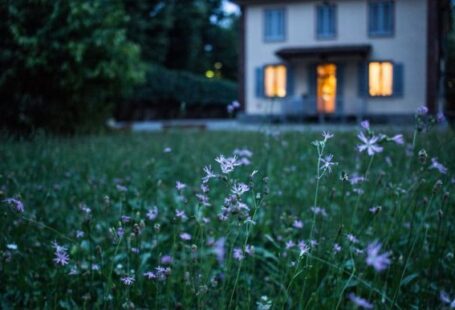Living a sustainable lifestyle is becoming increasingly important in today’s world. With the growing concerns about climate change and the depletion of natural resources, it is crucial for individuals to make conscious choices that minimize their impact on the environment. Fortunately, there are many simple and effective ways to embrace sustainable living. By making small changes to our daily routines, we can contribute to a greener future.
Reducing Energy Consumption
One of the most significant ways to live sustainably is by reducing our energy consumption. This can be done by making simple changes in our homes. Start by switching to energy-efficient appliances and LED light bulbs. These appliances use less energy and can significantly reduce your electricity bills. Additionally, remember to turn off lights and unplug electronic devices when they are not in use. Investing in proper insulation for your home can also help reduce the amount of energy needed for heating and cooling.
Conserving Water
Water is a precious resource that should not be wasted. Conserving water is not only good for the environment but also helps reduce your water bills. Start by fixing any leaks in your home, as even a small leak can waste a significant amount of water over time. Install low-flow showerheads and faucets to reduce water usage. Furthermore, collect rainwater for gardening and use it to water plants instead of relying on tap water.
Embracing Sustainable Transportation
Transportation is a major contributor to greenhouse gas emissions. By choosing sustainable transportation options, we can significantly reduce our carbon footprint. Consider walking or cycling for short distances instead of relying on cars. Public transportation is another eco-friendly alternative that can help reduce traffic congestion and air pollution. If you do own a car, try carpooling or using car-sharing services to minimize the number of vehicles on the road.
Eating Locally and Seasonally
Our food choices also have a significant impact on the environment. Opt for locally sourced and seasonal foods whenever possible. Locally grown produce has a lower carbon footprint as it does not require long-distance transportation. Seasonal foods are more likely to be grown without excessive energy consumption, such as heated greenhouses. Additionally, reducing meat consumption or choosing plant-based alternatives can have a positive impact on the environment.
Reducing Waste
Reducing waste is an essential aspect of sustainable living. Start by practicing the three Rs: reduce, reuse, and recycle. Minimize your use of single-use plastics and opt for reusable alternatives. Use a compost bin to dispose of organic waste, which can be used to enrich the soil in your garden. When shopping, choose products with minimal packaging or those made from recycled materials.
Supporting Sustainable Businesses
Supporting businesses that prioritize sustainability is another way to contribute to a greener future. When making purchasing decisions, look for certifications such as Fairtrade, organic, or Forest Stewardship Council (FSC). These certifications ensure that the products have been produced sustainably and ethically. Additionally, consider supporting local businesses that prioritize sustainable practices.
Conclusion: A Greener Future Starts with Simple Changes
Living sustainably is not about making drastic changes overnight. It is about making conscious choices in our daily lives that collectively have a significant impact on the environment. By embracing simple and effective tips such as reducing energy consumption, conserving water, embracing sustainable transportation, eating locally and seasonally, reducing waste, and supporting sustainable businesses, we can all contribute to a greener future. Start small, and gradually incorporate these practices into your routine. Together, we can make a difference and create a more sustainable world for future generations.





